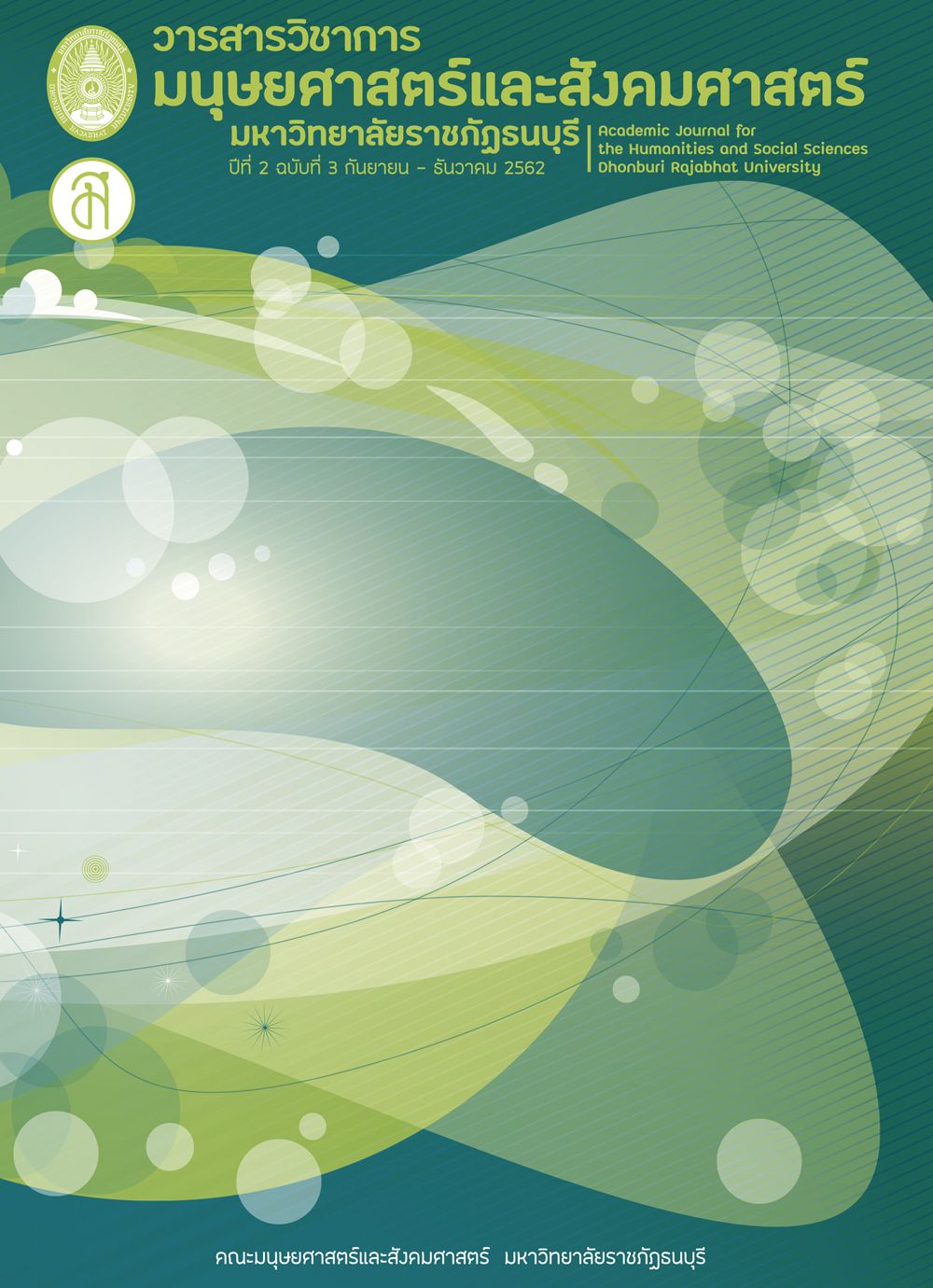แนวโน้มในอนาคตของรายวิชาการบริหารรัฐกิจ
คำสำคัญ:
การบริหารรัฐกิจ, แนวโน้มการบริหารภาครัฐ, สภาพแวดล้อมทางการบริหารบทคัดย่อ
สาขาวิชาการบริหารรัฐกิจมีพัฒนาการอย่างต่อเนื่องเสมอมา โดยเฉพาะอย่างยิ่งในยุคปัจจุบันที่มีการเปลี่ยนแปลงทางสังคมและเทคโนโลยีอย่างมากภายใต้สภาพการณ์ที่มีความเป็นพลวัตสูงของสังคมในปัจจุบัน ซึ่งเป็นปัจจัยสำคัญที่ส่งผลต่อนโยบายและการบริหารในภาครัฐ และส่งผลต่อการนำนโยบายไปปฎิบัติในทุกระดับ หนึ่งในคำถามสำคัญของนักวิชาการด้านการบริหารรัฐกิจคือ เนื้อหาสาระรายวิชาที่ควรสอนในสาขาวิชาการบริหารรัฐกิจควรเป็นเช่นไร จากการหาคำตอบได้จำเป็นต้องพิจารณาถึงแนวโน้มของของการบริหารภาครัฐในยุคปัจจุบันที่กำลังดำเนินอยู่ บทความนี้มีวัตถุประสงค์เพื่อทบทวนแนวโน้มของการบริหารภาครัฐในยุคปัจจุบันที่ส่งผลต่อเนื้อหาสาระของรายวิชาสาขาการบริหารรัฐกิจ ซึ่งผู้เขียนได้นำเสนอการเปลี่ยนแปลงที่สำคัญและความท้าทายหลายประการอันส่งผลต่อการบริหารภาครัฐ รวมทั้งมุมมองด้านการบริหารภาครัฐในยุคปัจจุบันหลายมุมมองด้วยกันเพื่อชี้ให้เห็นถึงแนวโน้มของการบริหารภาครัฐที่ได้รับผลกระทบจากปัจจัยระดับโลกซึ่งเป็นผลมาจากสภาพแวดล้อมทางการบริหาร
เอกสารอ้างอิง
Allio, L. (2014). Design Thinking for Public Service Excellence. Retrieved from http://www.undp.org/content/undp/en/home/librarypage/capacity-building/global-centre-for-public-service-excellence/DesignThinking.html
Beauchamp, G.A. (1981). Curriculum Theory. (4th ed.). Itsca: FE Peacock Publisher.
Curry, D. (2014). Trends for the Future of Public Sector Reform: A Critical Review of Future-Looking Research in Public Administration. Retrieved from http://www.cocops.eu/wp-content/uploads/2014/04/TrendsForTheFutureOfPublic SectorReform.pdf
Everest-Phillips, Max. (2014). From New Public Management to New Public Passion: Restoring the Intrinsic Motivation of Public Officials. Retrieved from http://www.undp.org/content/dam/undp/library/capacity-development/English/Singapore%20Centre/NotesPSE1_PublicPassion.pdf
Gerrits, L. M. (2008). The gentle art of coevolution: a complexity theory perspective on decision making over estuaries in Germany, Belgium and the Netherlands. Rotterdam, Erasmus Universiteit Rotterdam.
Oliva, P. (1992). Developing Curriculum. (3rd ed.). New York: Harper Collins Publisher.
Pollitt, C. (2014). Future Trends in European Public Administration and Management: An Outside-In Perspective. Retrieved from http://www.cocops.eu/wp-content/uploads/2014/04/FutureTrendsInEuropeanPublicAdministrationAndManagement. pdf
Robertson, P.J., & Choi, T. Ecological Governance: Organizing Principles for an Emerging Era. Public Administration Review 3 December 2010. Retrieved from https://onlinelibrary.wiley.com/doi/abs/10.1111/j.1540-6210.2010.02250.x
Saylor G., & Alexander, W.M. (1974). Planning Curriculum for Schools. (3rd ed.).
New York: Holt Rinchart and Winston.
Taba, H. (1962). Curriculum Development. Theory and Practice. New York: Harcourt, Brace and World.
Teisman, G.R., L. Gerrits, & Buuren V. (2009). Managing Complex Governance Sytems. Dynamics, Selforganization and Coevolution in Public Investments. New York: Routledge.
Uhl-Bien, M., R. Marion, et al. (2007). Complexity leadership theory: Shifting leadership
from the industrial age to the knowledge era. The Leadership Quarterly, 18(4), pp. 298-318.
United Nations Development Program Global Centre for Public Service Excellenc. (2015). Trends for the Future of Public Sector Reform: A Critical Review of Future-Looking Research in Public Administration. Retrieved from http://www.cocops.eu/wp-content/uploads/2014/04/TrendsForTheFutureOfPublicSectorReform.pdf
UNDP Global Centre for Public Service Excellence (2015). Stewardship of the Future: Using Strategic Foresight in 21st Century Governance (Discussion Paper 08-01). Retrieved at : http://www.undp.org/content/undp/en/home/librarypage/capacity-building/Stewardship.html
ดาวน์โหลด
เผยแพร่แล้ว
รูปแบบการอ้างอิง
ฉบับ
ประเภทบทความ
สัญญาอนุญาต

อนุญาตภายใต้เงื่อนไข Creative Commons Attribution-NonCommercial-NoDerivatives 4.0 International License.
บทความที่ได้รับการตีพิมพ์เป็นลิขสิทธิ์ของ คณะมนุษยศาสตร์และสังคมศาสตร์ มหาวิทยาลัยราชภัฏธนบุรี
- บทความในวารสารวิชาการมนุษย์และสังคมศาสตร์ มหาวิทยาลัยราชภัฏธนบุรี เป็นความคิดเห็นของผู้นิพนธ์ ไม่ใช่ความคิดเห็นของกองบรรณาธิการ และไม่ใช่ความรับผิดชอบของกองบรรณาธิการและ/หรือของคณะมนุษยศาสตร์และสังคมศาสตร์ มหาวิทยาลัยราชภัฏธนบุรี
- กองบรรณาธิการไม่สงวนสิทธิ์ในการคัดลอก แต่ให้อ้างอิงแสดงที่มา
- บทความที่ได้รับตีพิมพ์จะมีการตรวจความถูกต้องเหมาะสมจากกองบรรณาธิการและผู้ทรงคุณวุฒิในสาขาที่เกี่ยวข้อง (peer review) จำนวน 3 คน โดยผู้ทรงคุณวุฒิจะไม่ทราบผู้นิพนธ์ และผู้นิพนธ์ไม่ทราบชื่อผู้ทรงคุณวุฒิ (double-blind peer review)




